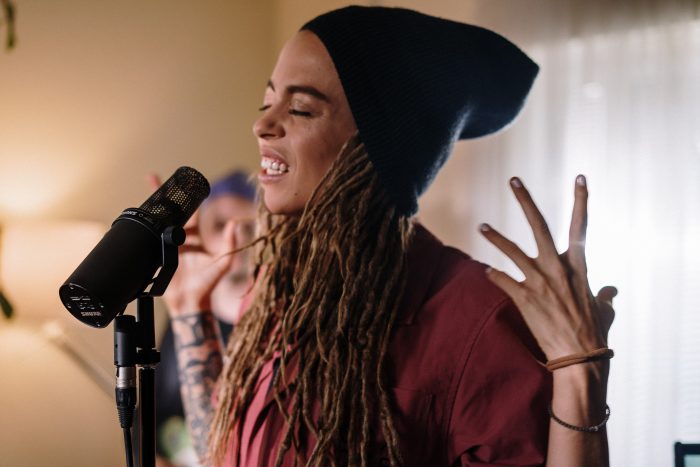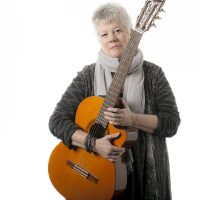The COVID-19 pandemic is hitting everyone hard, but it may be hitting women harder.
Many women are at greater risk on a number of fronts: they are overrepresented in frontline jobs such as healthcare and service work, at greater risk of losing jobs because they are overrepresented in lower paid and part-time work, and at greater risk of being overloaded and even overwhelmed while quarantined with family and taking on a greater share of parenting and household responsibilities.
All that to say nothing of emotional labour.
Rebecca Solnit describes this as part of a patriarchy pandemic, one that women are very aware of. Men, on the other hand? Not so much. Perhaps because it is so deeply embedded in our culture.
“The New York Times ran a piece suggesting that men don’t even recognize the inequality – ‘Nearly Half of Men Say They Do Most of the Home Schooling. 3 Percent of Women Agree’ is the headline that says it all.” (Solnit, 2020, par. 11).
The COVID-19 pandemic, however, is shining a light on the patriarchy pandemic, as well as on the gender inequality that underpins it.
One of the greatest risks facing women in the COVID-19 pandemic is what is now being called the “shadow pandemic.” This refers to domestic violence experienced at the hands of their intimate partner while under quarantine together. While calls to police may be down, calls to women’s shelters are skyrocketing, as are headlines about deaths of women who were unable to escape.
Facing the stress of daily life compounded with that of the pandemic, what can women do? Some talk about yoga, others about nutrition and exercise. As a music therapist, I say don’t overlook the power of music.
I’ve worked for over 30 years with people of all ages and from all walks of life, and I’ve never ceased to be amazed at what can be accomplished through music.
There is considerable research that shows just how effective music can be. It impacts us emotionally, spiritually, physically, and cognitively. And because it does all of this simultaneously, it holds incredible potential for catharsis and personal transformation.
Women can tap into this power in many ways, engaging with music through listening, singing along, and making music.
Use music to take you away.
Trapped in social bubbles of isolation with nowhere to go, getting away can seem like an unattainable dream.
But you can use music to take you away from it all.
Because of music’s complex impact on us, and because it takes place in time and space, it can demand full attention and serve as a riveting distraction. It can allow you to escape from the stress of the present to a place of relaxation. You can experience this in listening to calming music of your choice.
Want to take it up a notch? You can enhance the impact by pairing music with breathing exercises and progressive muscle relaxation.
Use music to bring you in.
Music allows us to focus in a unique way.
In listening to music and lyrics, we respond in complex ways, internalizing it and making it our own. While listening to the stories in songs of others, we project onto them our own stories and experiences. Songs about heartbreak or love’s recovery become songs of our heartbreak or love’s recovery.
You can use this power of music as you listen to songs to explore your own experiences in life. Create your own playlists, or find those of others on such diverse themes as love, relationships, self-worth, self-acceptance, empowerment, or recovering from abuse.
For women, the music of women singer/songwriters is particularly effective, allowing us to more readily see ourselves reflected in the music. And there’s an incredible wealth of songs out there.
Singing along enhances the music-listening experience, moving you from personal exploration to personal transformation. Try this out with Lizzo’s “Good as Hell.” It’s perfect for anyone getting over heartbreak or an abusive relationship with its strong message to dump him and love yourself.
Use music to connect you.
Music can act as an incredible connection bridge. It makes it possible to reach others when words fail. You can connect with others by making music for others or with others.
You can also connect with others by sharing music in person or online. The online connection through music probably represents the best of social media.
Use music to uplift you.
Because of music’s ability to impact us emotionally, spiritually, and physically, it has incredible potential for consolation and inspiration. You can use music to change your mood, and to uplift your spirits.
Find someone else’s empowerment song or fight song and claim it as your own.
There’s never been a better time with so many great anthems out there. If you have the background or inspiration, write your own.
Use music alone or with a music therapist.
All the powers of music can be tapped into by everyone. If, however, you’d like to delve more deeply into areas of personal growth and trauma work, or if you’d like to explore more music-making than your background permits, you can turn to a credentialed music therapist. They have the therapeutic and music skills to provide the necessary support. Many work at community, mental health, and women’s centers, as well as in private practice.
Whether it is used independently or in consultation with a music therapist, music is a marvelous medium for the support of all women. This is equally true for women survivors of violence.
Now or post-pandemic, don’t overlook the power of music for personal and societal change.
Now, I’ll leave you with this: have a listen to Kesha’s, “Woman.” But be forewarned: this song has some explicit language.
Then again, maybe that’s just what is needed in a kick*ss fight song. Sing along.







Read 1 comment and reply